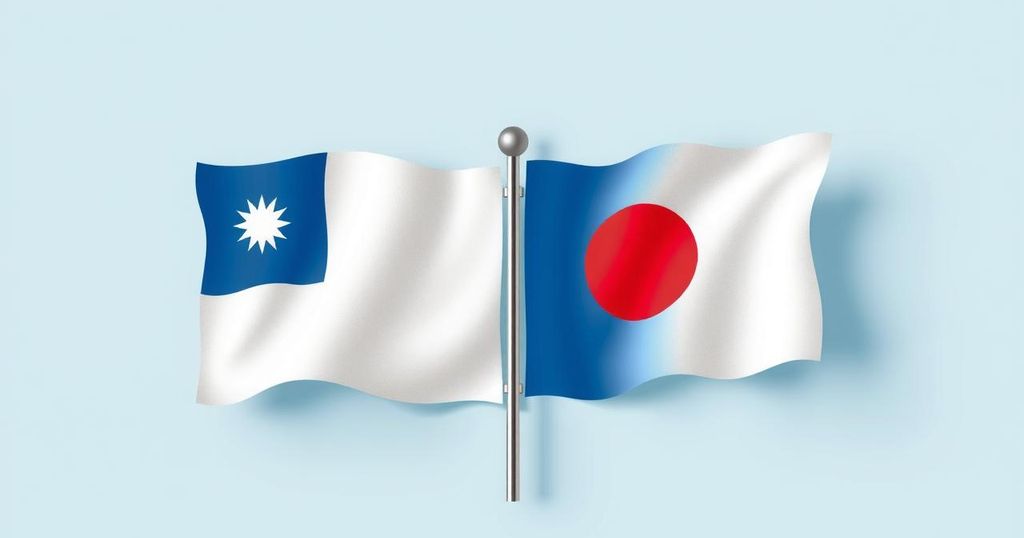Morocco’s Foreign Minister Nasser Bourita met Syrian FM Assaad Al-Chibani in Mecca, signaling improved diplomatic relations. Bourita reiterated support for Syria’s unity and the aspirations of its people. This engagement follows King Mohammed VI’s earlier supportive message and reflects a potential shift in Morocco’s position after years of diplomatic estrangement due to prior disagreements over the Assad regime.
On Thursday, in Mecca, Morocco’s Foreign Minister Nasser Bourita engaged in discussions with Syrian Foreign Minister Assaad Hassan Al-Chibani, an indication of a possible thaw in diplomatic relations between the two nations. During this meeting, Bourita reaffirmed Morocco’s unwavering support for Syria’s national unity and sovereignty, stating, “The Kingdom of Morocco follows closely the important developments in Syria.” He emphasized backing the aspirations of the Syrian people for stability and development.
This conversation occurred on the sidelines of the joint ministerial meeting between the Gulf Cooperation Council (GCC) and Morocco, aimed at fostering strategic partnerships and chaired by Kuwait’s Foreign Minister Abdullah Ali Abdullah Al Yahya. The meeting highlighted the evolving diplomatic landscape, following a message of congratulations from King Mohammed VI to Syria’s transitional president Ahmad Al-Sharaa earlier in February, which reiterated Morocco’s commitment to regional peace and support for the Syrian people’s aspirations.
Historically, Morocco’s approach to Syria had been strained, particularly after closing its embassy in Damascus in 2012 due to disagreements with the Assad regime. However, with recent developments leading to discussions about the reopening of the embassy following the Assad government’s collapse on December 8, a potential shift in relations is evident. Tensions had previously arisen from Syria’s support for Algeria during the Sand War and backing of the separatist Polisario Front, alongside discoveries of Iran’s use of Syrian soil to train its members.
The GCC meeting also took time to address the Western Sahara issue, with Secretary General Jasem Mohamed Albudaiwi referencing UN Security Council Resolution 2756 as it pertains to Morocco’s sovereignty over the region. The GCC voiced strong support for Morocco regarding its territorial integrity. Moreover, the transitional government in Syria, under Al-Sharaa, has proposed a plan spanning four to five years to establish electoral systems and political reforms, with an emerging attitude that appears to oppose the previous regime’s alignment with the Iranian axis.
This diplomatic shift has garnered widespread backing from various Arab nations, including Qatar, Saudi Arabia, the UAE, Kuwait, Oman, Jordan, and Yemen, endorsing the transition process in Syria and showcasing a collective effort towards regional unity and stability.
The meeting between Morocco and Syria signifies a pivotal moment in their diplomatic relations, moving towards a collaboration rooted in support for Syria’s sovereignty and unity. Following a period of estrangement, there appears to be a collective regional endorsement for Syria’s transitional government. As Morocco navigates this renewed relationship, it emphasizes its commitment to regional stability and development, illustrating a significant evolution in its foreign policy stance.
Original Source: www.moroccoworldnews.com




